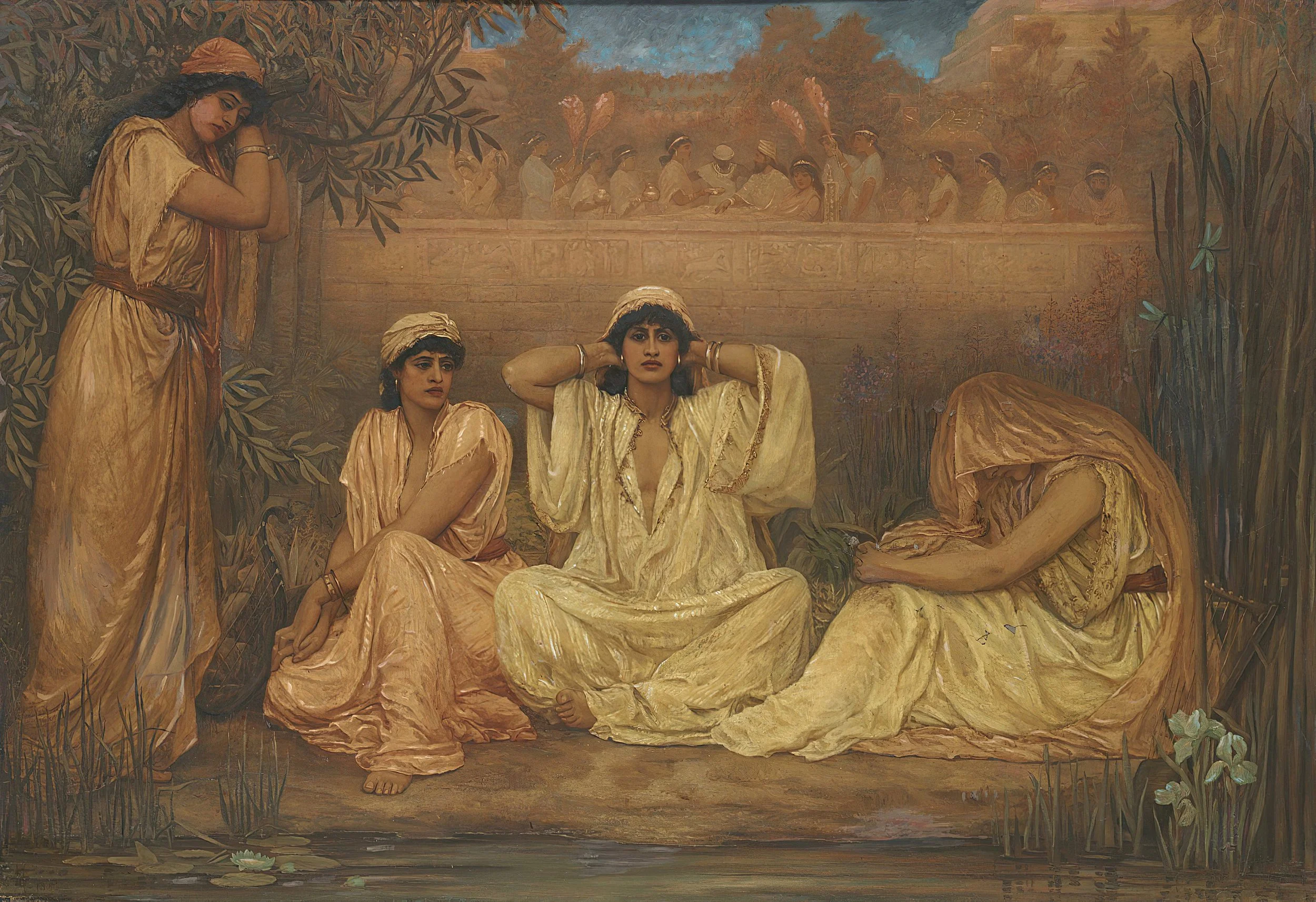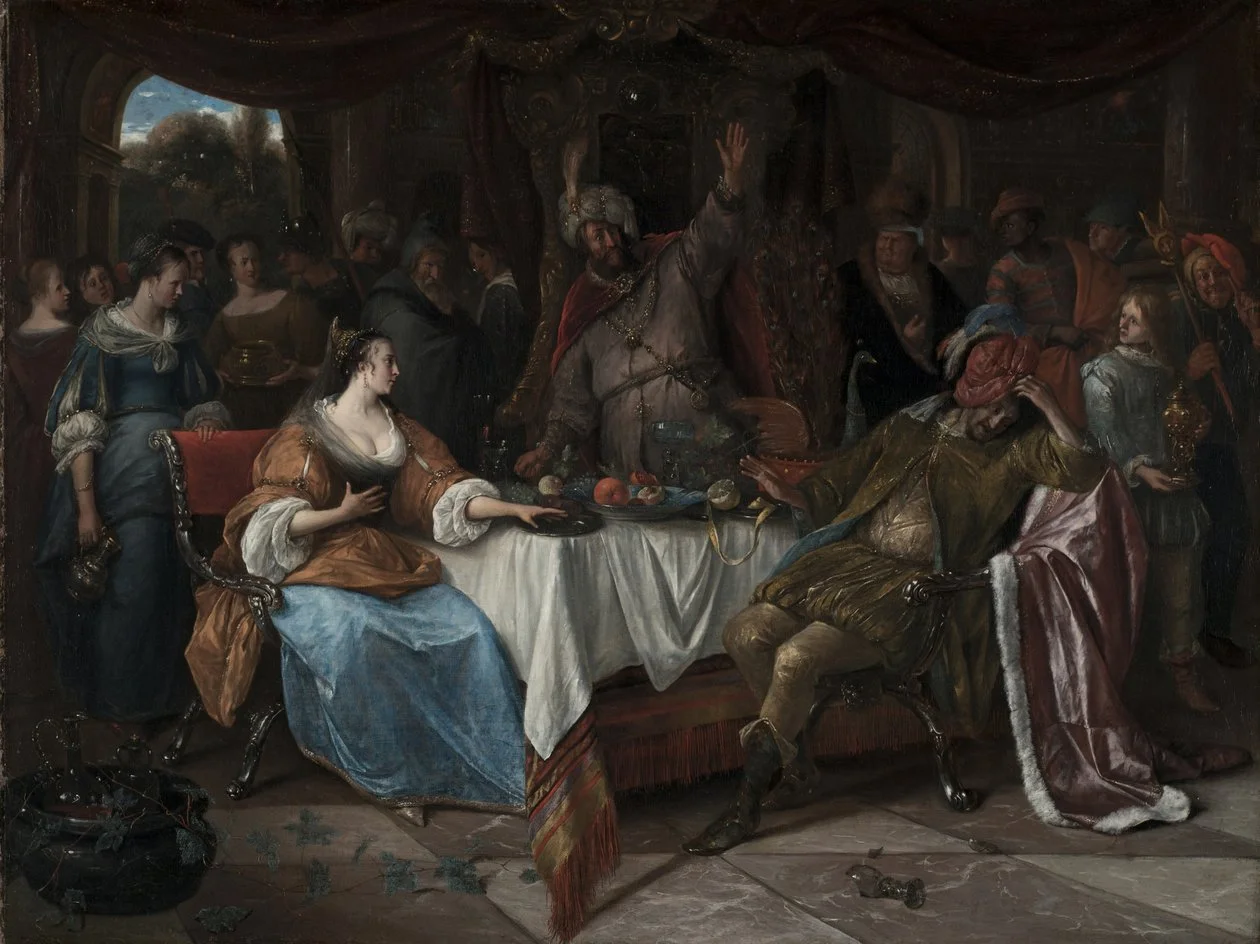When the Names Speak: The Hidden Gospel in Esther 1
Bible Study | Book of Esther
When the Names Speak: The Hidden Gospel in Esther 1
The Word Was Hidden—But Not Silent
The book of Esther is a mystery. It contains no mention of Yahweh’s Name. No prophets. No altars. No thunder from heaven… Or does it?
Don’t mistake unspoken silence for absence.
Stillness for absence.
Because Yahweh hid something in Esther’s opening chapter—something no earthly scribe could have woven.
It’s a hidden gospel.
A whispered prophecy.
A witness in the names.
And when I asked Yahweh what they meant—the names of the eunuchs and the princes in Esther 1—a scroll began to unroll and an ancient story is what it began to tell…
Not a scroll of men.
But rather, a scroll of the Lamb who was slain.
The Text: Esther 1:10,14
“On the seventh day, when the heart of the king was merry with wine, he commanded Mehuman, Biztha, Harbona, Bigtha and Abagtha, Zethar and Carkas, the seven eunuchs who served in the presence of Sovereign Aḥashwĕrosh... the men next to him being Karshĕna, Shethar, Admatha, Tarshish, Meres, Marsena, and Memukan, the seven princes of Persia and Media who saw the sovereign’s face and sat first in the reign.”
— Estěr 1:10,14 (TSR2009)
What Do the Names Mean?
Seven Eunuchs (Esther 1:10):
Mehuman – Faithful, trustworthy
Biztha – Possibly “spoil” or “plundered”
Harbona – Ass-driver; symbolic of burden-bearing or servitude
Bigtha – Grove or garden; a place of cultivation, or place of crushing (as a wine press)
Abagtha – Fortunate; God-given
Zethar – Star
Carkas – Severe, strict, or severe judgment
Seven Princes of Persia and Media (Esther 1:14):
Carshena – Illustrious, shining one
Shethar – Star
Admatha – A testimony to them or red earth
Tarshish – Possibly “white or yellow gemstone”; also a coastal region
Meres – Worthy or lofty
Marsena – Warlike or dignified
Memucan – Dignified, in honor
What Is Yahweh Saying?
In the opening chapter of Esther, we meet two distinct groups who surround the king: the seven eunuchs who carry out his commands, and the seven princes who hold authority and advise him. But their names, like secret messengers, tell a deeper story.
The eunuchs begin the picture:
Faithful, plundered, burden-bearing, fruitful, favored, stars, and severity—this group reflects what it means to serve in humility, under weight, without personal gain. Eunuchs were castrated; they had no legacy, no lineage—but they were trusted with access to the king's presence. Their names paint the story of the obedient remnant, faithful under suffering, refined under judgment, made fruitful by favor, and entrusted with the King's commands.
Then come the princes:
Illustrious, star, testimony, gemstone, lofty, warlike, and dignified—these names represent the throne's power structures, those exalted in name, appearance, and rank. Their names speak of outward glory, position, war, and brilliance—like fallen thrones that once reflected heavenly order, but can be easily corrupted when pride rises.
Together, these names tell a cosmic story:
There are those who serve the King in humility, hiddenness, and obedience—and those who stand near the throne in pride, power, and pretense.
The humble vs. the proud…
And we see this dynamic play out in the Scriptures, and the Gospels, over and over again.
What is Yahweh Teaching?
He is showing us that every throne—earthly or spiritual—is surrounded by two kinds of servants:
Those who are faithful, emptied of personal ambition, and carry the King’s commands in obedience, even if they bear no earthly legacy. (Like the Remnant Bride.)
Those who are exalted in the eyes of the world, glittering with war and wealth and "wisdom," but may speak prideful counsel that leads to destruction. (Like the fallen thrones and their human vessels.)
Just as Esther was surrounded by eunuchs who helped her prepare, so too the Bride of Yahushua is being prepared by messengers of truth, burden-bearing teachers, star-like witnesses, and strict refinement.
And just as Memucan counseled Vashti’s removal out of fear of rebellion, so false princes still whisper to kings, preserving power rather than seeking righteousness.
Esther, Ahasuerus, and Haman
| by, Jan Havicksz Steen
The Prophetic Narrative in the Names
“The Faithful One was taken as plunder, driven like a donkey to the winepress. He was God-given—a Star under severe judgment. But in Heaven’s courts, there stood the Illustrious Star, a Testimony, refined like jasper, exalted, worthy, and appointed to see the King’s face.”
This is not coincidence. This is divine authorship.
It’s the story of Yahushua, spoken in the shadows, before Esther ever enters the throne room. A Messianic foretellinghidden inside foreign names, as if Yahweh is saying, “Even in exile, I have not forgotten My Word.”
Bigtha and Carkas: Gethsemane and the Cross
The two names that burn brightest in this scroll are Bigtha and Carkas.
Bigtha means “Winepress.”
In Scripture, the winepress is a place of crushing, judgment, and blood:“I have trodden the winepress alone… their blood is sprinkled on My garments.”
— Yeshayahu (Isaiah) 63:3, ISRThis aligns with Gethsemane, which itself means “oil press”—another place of crushing.
“My being is exceedingly grieved, even to death.” (Mattithyahu 26:38)
Yahushua, pressed under the weight of the coming wrath, begins to drink the cup of judgment—ourcup.Carkas means “Severe / Slaughterer.”
It speaks of violent judgment. And so it points to Golgotha, where the Lamb of Elohim was executed under the full weight of wrath, so that we could go free.
These names were not selected by chance. They are the Spirit's fingerprints—left in ink that only opens under the flame of revelation permitted in the final days.
Harbona: The Donkey Driver
This name takes us straight to Zechariah 9:9:
“See! Your Sovereign is coming to you... lowly and riding on a donkey.”
— Zekaryah 9:9, ISR
Harbona means “donkey driver.”
A picture of the Messiah’s humility—He rode not as a king on a warhorse, but as a servant into the city that would slay Him.
Zethar and Shethar: The Star of Jacob
Two names mean “star”—a doubling that reflects Numbers 24:17:
“A Star shall come out of Yaʽaqob, and a Scepter shall rise out of Yisra’ĕl…”
Yahushua is that Star—shining even from the darkness of Persia.
He is the Light hidden in the shadows, the glory clothed in judgment, the Stone the builders rejected, now seated at the right hand of the King.
Tarshish, Jasper, and Revelation
Tarshish is associated with jasper—a brilliant stone used to describe the radiance of Yahweh’s throne in Revelation 21:11:
“...having the esteem of Elohim, and her light was like a most precious stone, like a jasper stone, clear as crystal.”
This connects the hidden Star to the bride of Messiah, glowing with His glory.
Why It Matters
This is no mere literary structure. This is the Spirit revealing Yahushua through hidden vessels. Esther begins with servants and princes, but Yahweh begins with a prophetic witness of the Gospel—embedded in names.
Before deliverance came, before Esther entered her role as intercessor, before the plot was revealed—Yahweh had already written His Son into the story.
He is always first.
“In the beginning was the Word, and the Word was with Elohim, and the Word was Elohim.”
— Yoḥanan (John) 1:1, TSR2009
And Here We Find Grace…
GRACE perfectly encapsulates the transition from striving, to resting, in God's presence—which is at the heart of the message. Grace is the unmerited favor of God, and it's through His grace that we are able to move from struggle to peace. I invite you to pause and reflect on God's presence, how you can connect to God’s grace in a meaningful way.
Our GRACE Method™ is meant to encourage you so you can experience YHWH, Immanuel, and the Holy Spirit, in a deeper way, on a regular basis, through thought provoking Bible Study, Prayer, education, and Worship.
The GRACE Method for The Hidden Names…
G – Grounded in Scripture
Esther 1:10,14;
Isaiah 63;
Matthew 26;
Revelation 21
These names are not throwaway details. They are chosen by the Spirit. Why do you think that is?
What do these details reveal to you about your own walk with Yahushua?
Does the Spirit reveal more of what is hidden to you? Write it out.
R – Reflect on Context
Persia was not Israel. These were eunuchs and princes of a foreign empire—yet Yahweh still spoke. Even outside the camp, His voice echoed.
A – Apply to Your Life
Where are you overlooking the "small names"?
Where has Yahweh been speaking through what you thought was just background?
Where were you in life when Yahweh began pursuing you?
C – Commune with God
Ask Him to open your eyes to the mysteries hidden in plain sight. Be willing to linger on the parts of Scripture most people skip.
E – Exalt God
Praise Him for being the Author of names, stories, and salvation. Honor Him as the One who reveals Yahushua from beginning to end.
Declaration
We declare that the Word of Yahweh is alive. That no name is wasted. That Yahushua is the Star, the Winepress, the Dignified One who sees the face of the King.
We declare that the Scriptures are not silent—they are singing of Messiah.
We speak it out: He was always there, even in exile. And He is here now.
In Yahushua’s Name.
Amen.
Share Your Faith
Have you ever had Yahweh reveal something through a name, a detail, or a hidden pattern in Scripture?
Share what He’s shown you—your faith may be the spark that opens someone else's scroll.
Fuel the Mission – Just like a warm cup of coffee fuels the body, your support fuels our mission to share God’s Word with the world. Every contribution helps cover the costs of running this ministry—keeping Bible study resources, articles, and printables free for everyone, regardless of income or resources. Your generosity allows us to continue creating faith-filled content, ensuring that no one is hindered from deepening their walk with Christ. If you’ve been blessed by what you’ve found here, consider helping us fuel the mission so we can keep spreading His truth far and wide.


